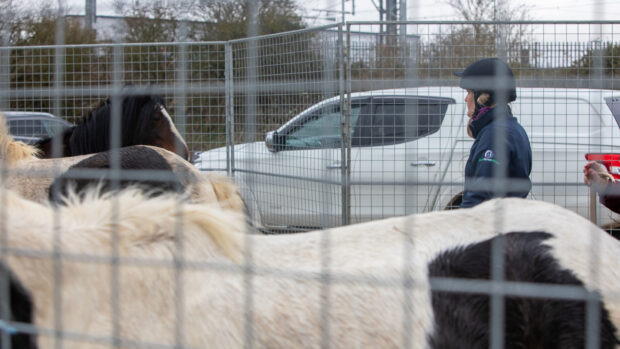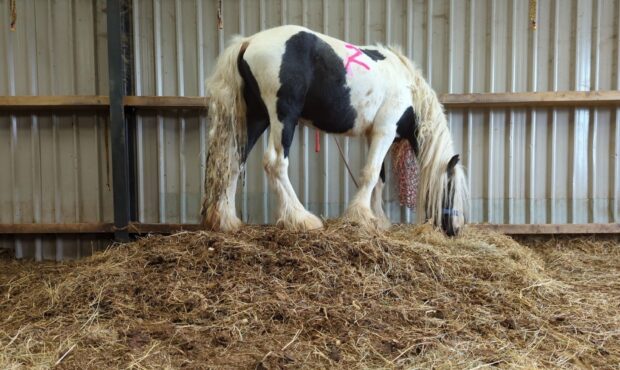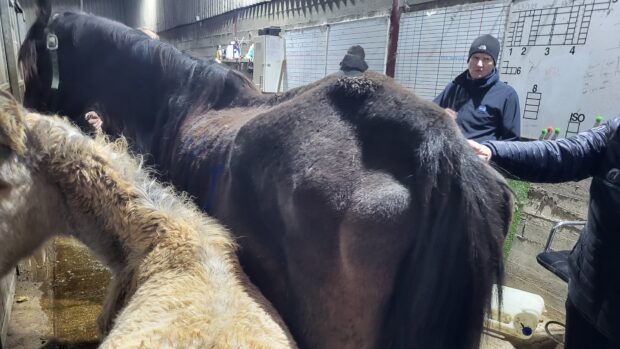Even on a bleak winter morning, the positive feeling at RSPCA Millbrook’s centre was warming.
News writer Rachael Hook and myself were given the chance to visit to better understand the work the RSPCA does, and the challenges they face.
The Surrey-based rehoming centre was home to small animals as well as six horses.
It was great to see horses like Annie — found in a badger sett as a foal — looking happy, healthy and playing in the field with their friends.
The staff on the ground are passionate about the horses in their care, telling us all about their history, their personalities and the sort of home they think each one would suit.
Inspector Leanna Rice agreed to take us out with her on some of her jobs for the day.
The first call was from a concerned member of the public to a field containing dozens of horses.
For anyone who has tried to spot a hunt in a patch of countryside when following in a car, you will understand just how a herd of horses can vanish.
Finding them was the first challenge and I came to understand as the day went on just how much time it can take when your directions are “a field near to the road close to a village”.
Although scruffy, the horses did not look to be suffering. The field was enormous, their hooves looked cared for and they looked to be a healthy weight.
Their water supply came from a stream and a pond — not what I would choose— but as Leanna explained, it was there.
We found more horses in a patch of sheltered woodland. What struck me there was someone had gone go the trouble of leaving large round bales of haylage, but had not bothered to open them.
The horses had picked them open, but it smelled sour and few seemed hungry enough to be bothered with it.
Why go to the trouble of moving hay to a field only to let it go to waste?
The inspector said her next step would be to find out who the owner was and would return to check on the horses.
World Horse Welfare is running a campaign to highlight the plight of invisible horses — and the day with the RSPCA gave the term a whole new meaning to me.
I always like to try and spot horses in fields, but once I started actively looking, I had not realised how many I had been looking past.
As we drove between jobs, Leanna pointed out police tape in the hedgerows, explaining that is often how police will secure a fence after a returning an escaped horse.
Again, these were things I had not even considered.
Continued below…
Shocking images of foal in a bit spark RSPCA investigation
‘The wounds were so deep that her muscles were exposed’: filly rescued by RSPCA
RSPCA warns of Kent ‘horse crisis’: 300 calls in two weeks *warning graphic images*
The next call was to reports that horses had been breaking through a fence on to neighbouring land.
It was a sorry sight — three horses on poor grass next to beautiful, green fields.
They had some water and someone had put the young filly in a rug. But again I could not stop questioning why people could go to the trouble of having horse, to the trouble of putting one in a rug, only to leave them in a miserable field?
It was frustrating to see and to not be able to do anything then and there. I wanted to find them a nice fresh paddock, to give them a groom, to show them I do care.
Leanna is unquestionably brave — these were not nice places and I was glad we did not run into trouble.
Her care for the wellbeing of these animals was clear, but she has to play by the rules. It is not an easy job.
Read the full report in Horse & Hound, 24 March 2016




